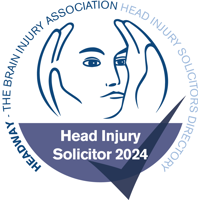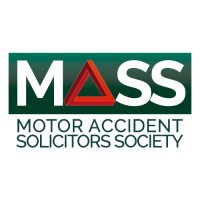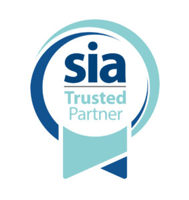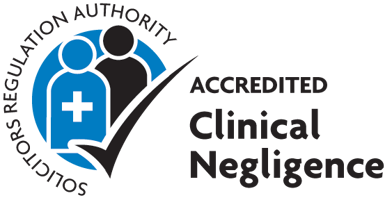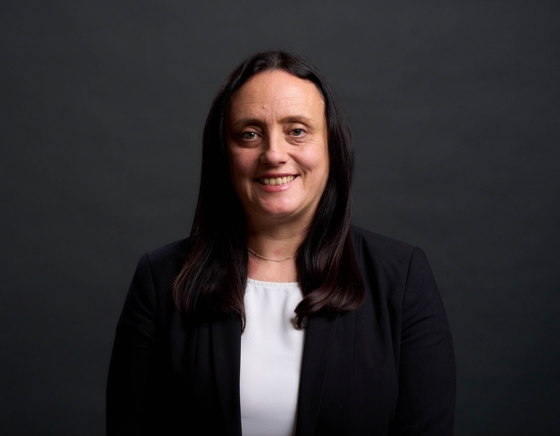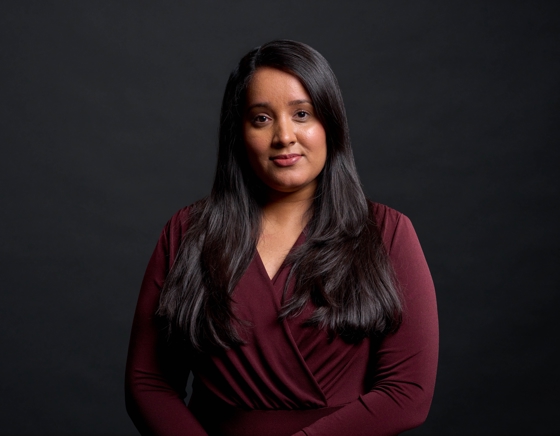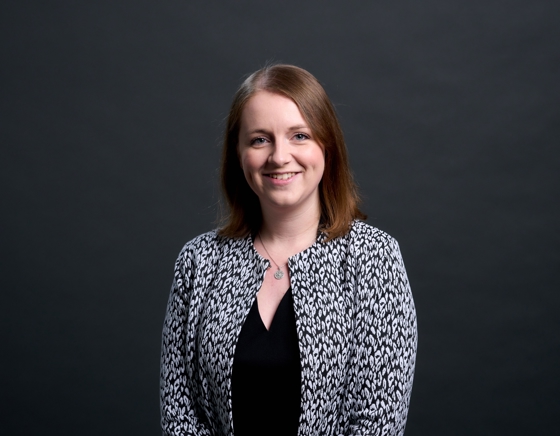Cerebral Palsy Compensation Claims
Guiding you through all aspects of cerebral palsy compensation claims
We have extensive experience of cerebral palsy and have helped to support a large number of people affected by the condition. This support can take several forms, including financial payments to help with specialist care and equipment, as well as emotional guidance and signposting to support groups.
We believe that our expertise is exceptional and that we can offer industry-leading support in times when people need it the most. The medical negligence team is proud to have long-standing partnerships with a wide range of charities such as Winston’s Wish, WeLoveCarers and Beacon Centre for the Blind.
We are committed to providing rehabilitation and support for children and their families from the earliest possible stage, ensuring they do not have to face the repercussions of the negligence for longer than necessary. Therefore, the team often makes applications to court for large interim payments to ease the financial burden that a child or their family may have to face from day one. At a time of huge life upheaval, this can allow the family to concentrate solely on the health challenges ahead.
The NHS Early Notification Scheme (ENS) investigates serious brain injuries that happen to children at birth. The scheme aims to speed up the investigation and give families answers as soon as possible. We have good experience of the ENS process and can help people who have been referred.
Start your cerebral palsy compensation claim
What is cerebral palsy compensation?
Compensation may be due when medical negligence has caused cerebral palsy.
Despite obstetrics only taking up a small amount of claims against the NHS, the compensation granted to these claims take up nearly half of all claim payments. This serves to highlight how seriously obstetric claims are regarded - and the importance of claiming compensation for the negligence you faced.
Medical practitioners are trained in handling emergency situations and dealing with complex pregnancies and childbirths. Compensation is available as a legal and financial recognition that a medical practitioner has failed in their duty of care and negligence has taken place.
Many people are reluctant to seek compensation from the NHS after negligence. The NHS does a fantastic job most of the time but mistakes do happen and it is only proper that those affected receive assistance towards medical expenses and ongoing support. This compensation can be paid as either a lump sum with interim payments or instalments as a child grows up and covers expenses that relate to the disability.
If you have a query as to whether you may have a clinical negligence claim, it is important to ask the question as early as possible. Our experienced, approachable lawyers genuinely care about the people they help and will guide you in your unique and individual circumstances.
Types of cerebral palsy
Spastic (hypertonic) cerebral palsy
This is the most common form of cerebral palsy and is caused by damage to the brain’s motor cortex. This form of cerebral palsy causes tight, stiff and weak muscles that make movement control difficult and causes jerky movements. Spastic cerebral palsy causes people to find everyday activities difficult, such as walking or picking up small objects. Also, there is the possibility for children with spastic cerebral palsy to develop co-occurring conditions such as attention deficit hyperactivity disorder (ADHD) or poor nutrition and respiratory issues. Despite this being the most common form of cerebral palsy, managing it is often quite difficult and can result in a financial burden for families who will have to fund a lifetime of medical expenses.
Hypotonic cerebral palsy
This form of cerebral palsy makes up roughly 2.6% of cases and is the result of damage to the cerebellum during or shortly after childbirth. This is the most uncommon form of cerebral palsy and, similarly to the others, it affects an individual’s motor function. This results in what’s described as floppy muscles, excessive flexibility and poor stability. This form of cerebral palsy can often be confused with hypertonic cerebral palsy, so it is important to understand the difference, which is the type of muscle tone. This form of cerebral palsy can be treated by physiotherapy, occupational therapy, speech therapy and mobility aids.
Athetoid (dyskinetic) cerebral palsy
This constitutes around 10% of those diagnosed with cerebral palsy and is caused by damage to the brain’s basal ganglia and/or cerebellum. Therefore, this form of cerebral palsy affects motor function, eye movement, balance and coordination, causing involuntary slow, writhing movements of the limbs or face and occasionally muscle spasms.
Ataxic cerebral palsy
This is caused by damage to the cerebellum and can be caused by problems during birth or head trauma after birth. As a result, an individual with this form of cerebral palsy struggles with balance, coordination and voluntary movement. They may have difficulty making precise movements, often experiencing tremors or shakiness. However, physiotherapy and occupational therapy are often provided as a way of improving an individual’s motor skills and encouraging independence.
Mixed cerebral palsy
This form of cerebral palsy is a combination of two or more of the above. This can be the result of brain damage in multiple areas of the brain and cause a variety of physical and neurological conditions. This form of cerebral palsy varies significantly depending on which areas of the brain are damaged and an individual’s specific diagnosis. Despite this, the most common types of mixed cerebral palsy are spastic/athetoid and spastic/ataxic. Treatment for this form of cerebral palsy varies depending on the individual, but the main goal is to manage pain and support independence throughout adulthood.
What causes cerebral palsy?
It is estimated that there are 17 million people across the world who are diagnosed with cerebral palsy. According to Cerebral Palsy Sport, there are 30,000 children in the UK who are diagnosed and living with cerebral palsy.
The NHS define cerebral palsy as “a group of lifelong conditions that affect movement and co-ordination.” It is a permanent disability that impacts a person’s mobility and muscle strength by preventing the normal development of motor function.
Cerebral palsy is caused by damage that occurs to the immature, developing brain, most often before birth. The symptoms of cerebral palsy are not usually obvious just after a baby is born. Therefore, it is possible to pursue a claim from the date of knowledge or for three years from a child’s 18th birthday to provide families and individuals with a fair chance of claiming compensation for the negligence they have faced.
Problems during pregnancy that can cause cerebral palsy include:
- Periventricular leukomalacia – this is damage to the part of the brain called white matter and is possibly as a result of a reduced blood or oxygen supply
- An infection passed on by the baby’s mother
- A stroke caused by limited blood supply to the baby’s brain or a bleed on the brain
- A head injury
- Or if the mother smokes, drinks a lot of alcohol or takes drugs during the pregnancy
Alternatively, cerebral palsy can be caused by problems that occur during, or very shortly after childbirth. This includes:
- When the baby’s brain temporarily does not get enough oxygen
- An infection of the brain, such as meningitis
- A serious head injury
- Very low blood sugar level
- A stroke
- A baby being born prematurely or a baby having a low birthweight.
- A birth of twins or triplets
How our solicitors can help
In 2022 our medical negligence team recovered over £42m in compensation for our clients. This included £4m for a mother and her son after mismanagement of her labour resulted in developmental delay and cerebral palsy in the child.
Our solicitors within the medical negligence department appreciate that these times can be difficult and stressful for families. By assisting you in making a claim efficiently and empathetically, our solicitors can ensure that the case is won or settled in a way that brings this troubling time to a close with the reassurance that ongoing care, medical expenses and living expenses are covered.
Our solicitors can recover significant lump sums and/or Periodical Payment Orders that will meet your annual care needs. These Periodical Payment Orders mean that families can receive a yearly payment of damages to provide reassurance that their needs will be covered for the foreseeable future.
What is the role of a cerebral palsy claims solicitor?
When poor medical care during pregnancy or childbirth causes a baby to develop cerebral palsy, it is the responsibility of a specialist solicitor to make a claim against the medical organisation on behalf of the client who has received the negligence.
A cerebral palsy claims solicitor can bring a claim in the following circumstances:
- A failure to detect, diagnose and treat an infection during the pregnancy
- A failure to monitor and treat blood sugar levels during the pregnancy
- A failure to monitor the baby’s heart rate
- Poor treatment of jaundice
- Complications around the umbilical cord which leads to a lack of oxygen to the baby
- The misuse of drugs
- Incorrectly using vacuum forceps, vacuum extractors, or other delivery tools
- Failure to quickly clear the baby’s airways after birth
- Delays in delivering the baby, including delays by C-section
Our medical negligence lawyers have specific expertise in cases involving serious birth injuries, such as cerebral palsy, and can support and guide you through the process of making a claim.
Funding a claim
There are several ways of funding a clinical negligence claim, which include:
- No win, no fee agreement
- Legal Aid
- Legal Expenses Insurance
- Trade Union
- Damages based agreement
- Pay privately
In most cases, a medical negligence claim is funded by a Conditional Fee Agreement. This is often known as a ‘no win, no fee’ arrangement. This means that your lawyer will not charge for their costs if your case is lost. You will still be liable to pay disbursements incurred and in certain circumstances you may also be liable to pay your opponent’s legal fees. Therefore, we recommend you take out after-the-event (ATE) insurance to cover these. If you lose, you do not pay the ATE insurance premium.
If you win, your lawyer charges a ‘success fee’ on top of their normal legal charges which is capped to a maximum of 25% of your damages. The defendant usually pays most, if not all, of the normal legal charges but none of the success fee. You will also have to pay part of the ATE insurance premium.
Legal Expenses Insurance is a policy taken out beforehand to cover any future legal problems. You may have this as part of car insurance, household insurance, trade union membership or under a credit card. Cover may be limited and might restrict how you can bring a claim.
No win, no fee claims
A ‘no win, no fee’ agreement is the most common funding arrangement for medical negligence cases because it can provide a solution for those who cannot cover legal expenses upfront.
With no win, no fee agreements, your solicitor shares the risk with you by covering the costs involved in bringing the claim. If the case is successful, the other side usually pays the solicitor's fees. If the case is unsuccessful, you are not liable for the solicitor fees, but there may still be certain costs to consider, including expert witness fees and court fees, which you would need to cover.
It is essential to be aware that when using a no win, no fee agreement if the case is successful, your solicitor will take a success fee, a percentage of the compensation awarded. This is capped at 25%.
Legal Aid
We also offer Legal Aid. Legal Aid is only available in claims where there is clinical negligence during your pregnancy, childbirth or in the post-natal period, which causes your child to suffer severe disability because of a neurological injury.
Accessing rehabilitation and medical care.
Physiotherapy and occupational therapy are the most common forms of treatment for cerebral palsy. Therefore, it is important to ensure that you, or your loved one can access that rehabilitation and medical care required following on from the medical negligence experienced.
Often families are apprehensive about the cost implications of rehabilitation and medical care. Our medical negligence solicitors use their expertise to ensure that you receive enough compensation to take this burden away from you and cover these costs. We appreciate that it is important to ensure that your quality of life improves and the financial burden is lifted from your shoulders. Therefore, we pride ourselves on providing the best service we can to achieve a just outcome.
Average settlements for cerebral palsy claims
For medical negligence claims on behalf of a child born with cerebral palsy, it may be possible to claim for the pain and suffering caused, costs of any care, medical treatment, rehabilitation, assistive aids, equipment, and any housing adaptions and/or an adapted property that may be required now or that will be required in the future. You could also claim for lost earnings that were incurred because of medical negligence. The level of compensation you can receive will vary on a case-by-case basis. Generally, the severity of the medical negligence determines the amount of compensation you may receive.
We are leaders in this field and regularly achieve compensation that runs into millions of pounds – or even tens of millions.
How to make a cerebral palsy claim
The first step is determining if you have been subject to medical negligence which has caused the cerebral palsy. To do this, our team will request your consent to access the relevant medical records to establish whether there was a form of negligence by a medical practitioner and then prove that the suffering you have or are experiencing is because of that negligence.
To bring a clinical negligence claim, you must prove that:
- the treating medical professional owed a duty to take care of you and not cause injury;
- they breached the duty of care they owed to you; and
- this caused you to suffer an injury or loss
In some cases, we will need to instruct an independent expert to comment on the standard of care and treatment you received as part of your negligence claim.
Finally, causation will need to be established. You must show that the injury or loss you or your loved one suffered was caused by the breaches of duty identified. Essentially, would you or your loved one have sustained the injury or loss had it not been for the negligence?
If this can be satisfied, we must then evidence the impact that the injury has had on you and what losses you have suffered in order to determine the amount of compensation you are likely to receive.
Time limits
There is a time limit in bringing a claim for clinical negligence. A claim must be brought within three years from either:
- The date the negligence happened; or
- The date of which you became aware you suffered the significant injury; or
- From the date your loved one passed away as a result of the negligence, unless your loved one was aware of their injuries or worsening condition from the treatment before they passed away
There are some exceptions to the above time limit. A claim can be brought on behalf of a child at any point before they turn 18. When your child turns 18 and has their own mental capacity, they must then bring a claim before their 21st birthday.
There is no time limit for adults who lack mental capacity and so a claim can be brought on their behalf by their litigation friend at any point.
How long does it take to claim?
We understand that this is an emotional time in your and your loved one’s life, so we aim to complete your claim as quickly as possible whilst getting you the compensation you deserve but, more importantly, are entitled to.
It is difficult to give a time frame for any case as each one is different and unique in their set of facts. In some cases, liability is admitted promptly by the medical professional, so it may be possible to move forward with your case to establish the level of compensation deserved.
FAQs
The NHS define cerebral palsy as “a group of lifelong conditions that affect movement and co-ordination.” It is a permanent disability that impacts a person’s mobility and muscle strength by preventing the normal development of motor function.
The word ‘cerebral’ refers to the brain’s cerebrum, which is the part of the brain that regulates motor function. ‘Palsy’ describes the paralysis of voluntary movement in certain parts of the body.
Cerebral palsy is often caused by a problem with the brain that happens before, during or soon after the birth.
There can be both physical symptoms and neurological symptoms of cerebral palsy. This often depends on the type of cerebral palsy and the severity of symptoms can vary depending on the child. However, according to the NHS website, these can include:
Movement and developmental problems:
- Delays in reaching development milestones – for example, not sitting by eight months or not walking by 18 months
- Seeming too stiff or too floppy (hypotonia)
- Weak arms or legs
- Fidgety, jerky or clumsy movements.
- Random, uncontrolled movements.
- Muscle spasms.
- Shaking hands (tremors).
- Walking on tiptoes.
Other symptoms:
- Feeding, drooling and swallowing problems
- Constipation
- Problems with speaking and communication
- Seizures or fits (epilepsy)
- Difficulty falling asleep and/or staying asleep
- Gastro-oesophageal reflux disease (GORD) – where acid from the stomach leaks up into the oesophagus (gullet)
- An abnormally curved spine (scoliosis)
- Hips that pop out (dislocate) easily
- Difficulty controlling the bladder (urinary incontinence)
- A learning disability – about half of children with cerebral palsy have a learning disability
- Eye problems – including reduced vision, a squint or uncontrollable eye movement
- Hearing loss
There are 5 different types of cerebral palsy:
- Spastic cerebral palsy – this is where muscles in the body are tight, stiff and weak, making movement control difficult.
- Hypotonic cerebral palsy – this form of cerebral palsy affects motor coordination and results in what’s described as floppy muscles, excessive flexibility and poor stability.
- Athetoid (dyskinetic) cerebral palsy – this involves involuntary slow, writhing movements of the limbs and sometimes muscle spasms.
- Ataxic cerebral palsy – this is a difficulty with balance which causes unsteadiness when walking and shaky movements of the hands.
- Mixed cerebral palsy – this is a combination of two or more of the above.
There is also hemiplegia, or diplegia, and these refer to specific parts of the body that’s affected by cerebral palsy.
Cerebral palsy is caused by brain damage to a fetal or infant brain. Many cases of cerebral palsy are caused by medical negligence before, during or shortly after childbirth. This negligence can often relate to detecting infections, fetal heart rate, caesarean sections (C-sections), prolapsed umbilical cords (which cuts off oxygen to a baby), or improper use of delivery tools.
These cases are often preventable because it is the responsibility of medical practitioners such as midwives, doctors and other paediatric professionals to understand and manage the risks during, and shortly after childbirth. Therefore, it is important that when medical negligence happens, those responsible should be held accountable for their actions, and those affected compensated for the damage caused.
For medical negligence claims on behalf of a child born with cerebral palsy, it may be possible to claim for the pain and suffering caused, costs of any care, medical treatment, rehabilitation, assistive aids, equipment, and any housing adaptions and/or an adapted property that may be required now or that will be required in the future. You could also claim for lost earnings that were incurred because of medical negligence. The level of compensation you can receive will vary on a case-by-case basis, however we have dealt with cases in the region of £20mllion.





